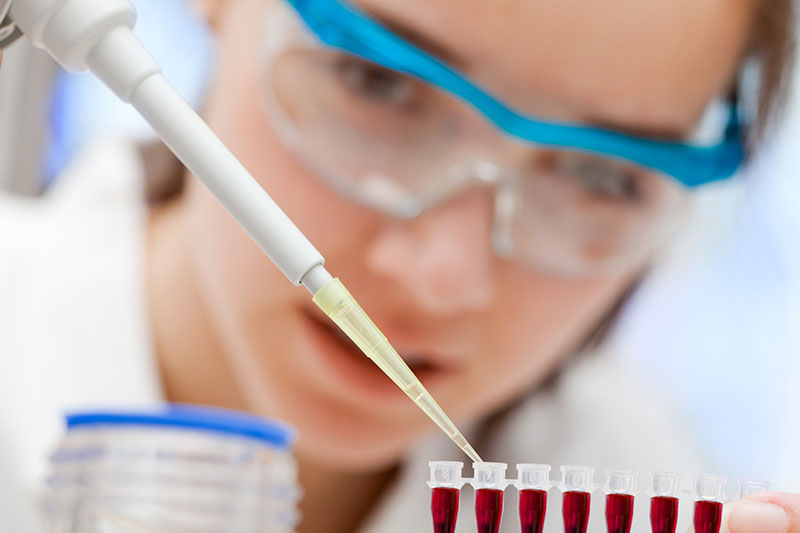With an increased spotlight on cancer prevention, including Angelina Jolie’s high-profile announcement earlier this month, many people are wondering what they can do. This question has led to growth in a newer medical field: genetic counseling. Aimee Martin of Virginia Cancer Specialists and Tifany Lewis of Virginia Oncology Associates, both certified genetic counselors, share steps for finding out personal cancer risks.
#1 Trace that Family Tree
Getting a good family health history helps tremendously. Sit down and talk to your living relatives and ask specific questions. Because many cancers have been found to have a genetic component, it may mean screenings scheduled earlier than the general public. Lewis said that genetic health history should be mainly concerned with 1st degree (parents, siblings and offspring) and 2nd degree (grandparents, aunts, uncles and cousins) relatives.
Lewis notes, “You’ll want to find out about early breast cancer, ovarian cancer at any age, bilateral breast cancer and male breast cancer. These would warrant a consult. Also if there’s more than two people in your family who’ve had cancer, talk to your physician.” Early cancer is considered to be before age 50, and can mean earlier screenings for family members.
#2 Get All the Details!
“In the genetic counseling setting we usually ask patients the age and cause of death of their maternal and paternal relatives; whether any disease runs in the family (neurological, cancer, etc.). If a family member has had cancer we like to know the specific type they had (For example, uterine cancer vs. female cancer),” Martin says.
Lewis encourages older generations to start writing it down and sharing. “We’ve had a culture where people didn’t discuss their health histories – but we are trying to change that,” she says. If all else fails, try to obtain death certificates or autopsy reports.
#3 My Risk Seems Low – Can I Relax?
“I advise people to talk with their primary health care provider about their concerns to make sure they are getting the appropriate surveillance for their age or if they are candidates for genetic counseling and/or testing. I also advise people to familiarize themselves with the risk factors for cancer and practice a healthy lifestyle,” says Martin.
Although more than 40 cancers have been linked to a gene, many cancers have no hereditary link. Continue to follow common preventative tips and schedule regular screenings.
#4 Based on My Risk Factors, I’m Worried. What’s Next?
Genetic counseling is the first step, and it’s different from genetic testing. Counseling is the process prior to testing and Martin says it shouldn’t be underestimated in the value for preparing individuals for test results.
What genetic counselors are looking for is how the information gained from the test will change the patient’s medical management, and if there’s a psychosocial risk. Anxiety may accompany the test results, whether more information is gained or not.
“We may identify a gene mutation we know predisposes person to cancer. But a negative result means no change…but still a possibility that it develops or that you could have something we haven’t tested you for. It can be frustrating,” Lewis says.
#5 Wouldn’t I Be Better Off Not Knowing?
Martin says there’s tremendous value to knowing your risk factors for cancer. Although there is no way to prevent cancer 100 percent, there are ways to increase monitoring to catch it earlier.
“In many cases, there are options such as more frequent cancer surveillance that can detect cancer at an early and more treatable stage,” says Martin.
Additionally, blood work, imaging or physical exams could be added to an action plan as needed.
#6 Keep Your Doctor in the Loop
Whether or not there’s a need to take action now, keep your primary care physician in the loop about your family history, your personal health and any changes in your health information. Have the conversation as soon as possible.
For More Information
- Another good tool for patients to use is the surgeon general’s family history tool. This can be found at http://www.hhs.gov/familyhistory/. Using this tool, patients can electronically enter and store information about their family history. This can be printed out and given to their physician.
- There are many genetic counselors in the US and they can be found through the National Society of Genetic Counselors website www.nsgc.org
- People can also visit the American Cancer Society website for more information on the causes and risk factors for cancer at www.cancer.org



